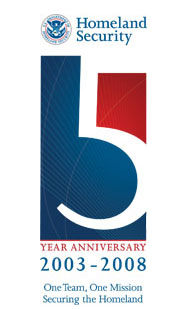Criminal Justice, Gulf Coast Rebuilding Sectors
- Recognizing that crime in New Orleans represents a major impediment to long-term rebuilding efforts, OFC worked with the Department of Justice (DOJ) to support state and local officials in their efforts to curb crime.
- OFC worked closely with federal, state, and local stakeholders, including the New Orleans Police Department (NOPD), the New Orleans District Attorney's Office, and the U.S. Attorney's Office, to identify the most pressing needs. OFC then coordinated with DOJ to develop a package of federal resources that would help meet these needs. On January 25, 2007, the Attorney General announced a number of new DOJ assets for New Orleans, including:
- Additional FBI, DEA, and ATF agents, Deputy U.S. Marshals, and federal prosecutors
- New authority for DEA to enforce all federal criminal laws, not just federal drug laws
- A more aggressive strategy to attempt to try more cases under federal jurisdiction
- Additional technical assistance and training for NOPD
- On February 13, 2007, the Attorney General traveled to New Orleans to announce additional resources, including:
- Up to $3 million to support a new Family Justice Center in New Orleans that opened on August 28, 2007
- Funds to reestablish the NOPD crime lab and help local law enforcement with the processing of forensic evidence
- Highly trained specialists who can help strengthen local victim and witness assistance programs.
- To date, DOJ has provided more than $86 million to Louisiana, with more than $40 million specifically for New Orleans, to restore criminal justice infrastructure, better equip local law enforcement agencies, and support local leaders in their fight against crime.
- These funds have helped outfit local police and sheriffs with vital equipment like police cars, computers, and a new crime lab; they have helped re-establish local court operations, and have helped pay the salaries of prosecutors and investigators, as well as supporting programs that prevent youth violence and aid victims of domestic violence.
- OFC also works in close coordination with FEMA, the city, and the state to expedite outstanding FEMA infrastructure funding (Public Assistance, or PA) related to criminal justice.
- OFC is working with DOJ's Office of Juvenile Justice and Delinquency Prevention and the Federal Youth Coordinating Council on Juvenile Justice and Delinquency Prevention to develop additional strategies to support the large population of at-risk young people in New Orleans
- In May 2007, OFC secured a commitment of several hundred additional AmeriCorps members, who deployed to New Orleans during the summer months to support youth-serving agencies. OFC provided the coordination necessary to make this unique public-private collaboration possible, facilitating efforts between the Corporation for National and Community Service, the Louisiana Serve Commission, the Greater New Orleans After-school Partnership, and a number of local youth-serving organizations.
- OFC participated in the second public safety infrastructure master plan forum to listen to the priorities of the New Orleans Police Department, Sheriff's Department, Court System, and other criminal justice stakeholders. Chairman Powell followed that meeting with a letter to Mayor Ray Nagin expressing that this and similar forums are a venue for the city to communicate its priorities and for FEMA to provide technical assistance by drawing the plan.
- OFC will continue to dialogue with local leaders, evaluate ongoing needs, and recommend additional federal strategies to help address those needs.
This page was last modified on October 23, 2007


